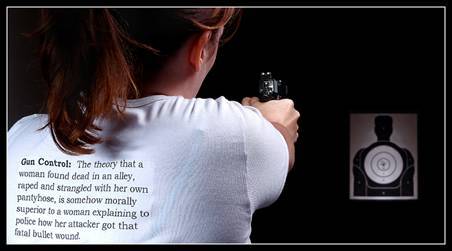The AP recently had an article about what they referred to a "loosening" of gun control laws this year. Even the title suggests some lack of objectivity on what is otherwise a reasonably accurate piece. I can't imagine an article about "loosening" of First, Fourth or Fifth Amendment laws.
The AP credits the NRA with the changes in the laws, but, as we'll explore later, there is more of a grass-roots interest in changing the laws. The NRA, alone, can't pass the laws themselves.
Changes to the law:
- Arizona, Florida, Louisiana and Utah have all passed laws making it legal for employees to keep their hunting rifle in the cars at work
- Disney, however, citing an exemption to the Florida for businesses in which "the primary business conducted is the manufacture, use, storage, or transportation of combustible or explosive materials" does not allow its employees to have firearms anywhere on the premises. Bet you thought they were just about Mickey and Tinkerbell, didn't you.
- Alabama, Arkansas, Louisiana, South Carolina and Virginia have passed laws keeping the names and addresses of firearm permits holders private.
- In Memphis, the Commercial Appeal printed the names and addresses of permit holders.
- In Roanoke, Virginia, the Roanoke Times printed the names and addresses of permit holders in Virginia. The list was quickly removed after the name and address of the editorial writer was printed by a gun-rights group.
- A similar law was defeated in Oregon.
- Washington has had a privacy law for years.
- It is interesting to note that when the names of Registered Sex Offenders are printed, only the block of residence is printed.
- Montana, Arizona and Kansas have included firearms possession in those civil rights returned to felons who have had their convictions expunged or otherwise had their civil rights restored.
- Montana and Tennessee, citing the Tenth Amendment rights, have passed legislation allowing their residents to purchase firearms produced in their state to be exempt from federal restrictions.
- Federal control of firearms is allowed by the Commerce Clause of the Constitution, which empowers the federal government "to regulate Commerce with foreign Nations, and among the several States"
This next year in Washington, there is already a discussion of an "Assault Weapon Ban", as was discussed recently.
Thoughts? Leave a COMMENT.
